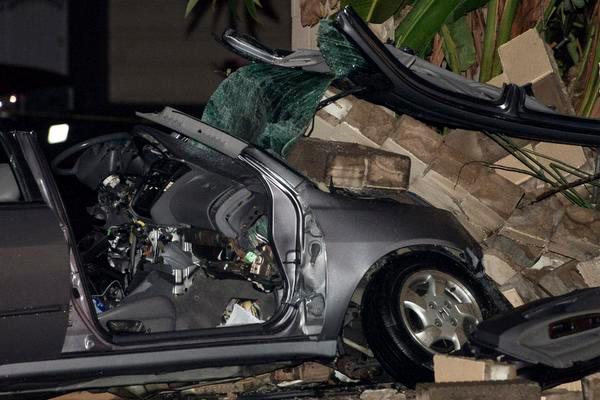
In a serious injury car crash, the medical bills often exceed $100,000. Unfortunately, Minnesota has one of the lowest auto insurance minimum requirements in the country. So, many individual tortfeasors (negligent drivers) in Crow Wing County do not have enough coverage to pay fair compensation in these situations.
Fortunately, the Gopher State also has very broad vicarious liability (third party liability) rules. These rules give victims in serious injury crashes an additional source of compensation. That’s good news, because although it is legally possible to file additional claims against individuals, these claims are complex. It’s much easier to obtain compensation in a single legal matter.
Depending on the facts, Brainerd injury lawyers have several legal options. Basically, if a third party was in a position to stop a crash and did not do so, that third party may be legally responsible for damages.
Owner Liability
Vehicle owners are in a very good position to prevent car crashes. They simply must hold onto their car keys. So, the negligent entrustment rule applies in both non-commercial matters (e.g. a teenager using a parent’s vehicle) and commercial matters (U-Haul trucks, Enterprise rental cars, and so on).
Generally, owners are legally responsible for car crash damages if they allow incompetent drivers to use their vehicles and these drivers cause car accidents. Evidence of incompetence includes:
- No drivers’ license,
- Safety-suspended drivers’ license,
- A poor driving record, and
- Violation of drivers’ license restriction, such as no nighttime driving.
Victim/plaintiffs must also establish knowledge. So, assume Father allows his teenage Daughter to use his car one weekend. Daughter has a valid license, but she has a very poor driving record which includes an at-fault collision. Over the weekend, she strikes another vehicle in an intersection.
If Father knew about Daughter’s poor driving record, he may be liable for damages. Moreover, a Brainerd injury lawyer must establish that Daughter’s poor driving record rendered her incompetent.
The same analysis may apply with regard to a safety-suspended license or a restriction violation. Father must know about the issue and Daughter must be incompetent. However, if Daughter had no drivers’ license, she was probably incompetent as a matter of law.
In commercial negligent entrustment claims, Brainerd injury lawyers must establish additional facts, because of the Graves Amendment. In 2005, lawmakers added this policy rider to a large transportation bill. It protects companies like U-Haul from negligent entrustment actions if the owner or agent was:
- In the “Trade or Business” of Renting Vehicles: The Graves Amendment does not define “trade or business.” But in contract law, this phrase usually means the business is specialized. Most truck rental outlets are basically moving supply retailers which rent a few trucks on the side. Therefore, Graves Amendment immunity arguably does not apply.
- Not Otherwise Negligent: It is the vehicle rental industry standard to verify the validity of a drivers’ license. If a retailer fails to do so, it is arguably negligent.
Brainerd injury lawyers must establish knowledge and all other essential facts by a preponderance of the evidence (more likely than not).
Dram Shop Liability and Brainerd Injury Lawyers
Alcohol causes almost a third of the fatal car crashes in Crow Wing County. Under Minnesota law, bars, restaurants, grocery stores, and other commercial alcohol providers may be vicariously liable for damages. Liability attaches if the provider illegally sold alcohol to the tortfeasor, and that alcohol substantially caused the crash. Minnesota’s dram shop law is one of the broadest ones in the country.
Sales to intoxicated persons constitute most of these illegal sales. Evidence of intoxication at the time of sale includes bloodshot eyes, slurred speech, and unsteady balance. Other illegal transactions include underage sales, unlicensed transactions, and after-hours sales. Private providers, like party hosts, might be similarly liable for damages as well.
Employer Liability
Bus crashes, truck crashes, and other such wrecks usually involve the respondeat superior doctrine. Employers are legally responsible for the damages their negligent employees cause if:
- Employee: Independent contractors, regular employees, owner-operators, and even unpaid volunteer drivers are all employees in this context. The employer controls all these individuals with regard to hours worked, route traveled, and passengers or cargo carried.
- Scope of Employment: According to one recent court ruling, a man’s heart attack, which he suffered after an amorous encounter with a woman, was within the scope of employment because it occurred on a business trip. Minnesota law is not quite that broad, but it is close.
Other employer liability theories, which often apply in assault and other intentional tort claims, include negligent hiring and negligent supervision.
Contact Assertive Attorneys
The tortfeasor may not be the only person who may be liable for damages. For a free consultation with an experienced Brainerd injury lawyer, contact Carlson & Jones, P.A. You have a limited amount of time to act.

